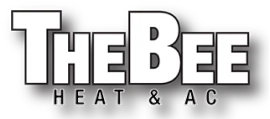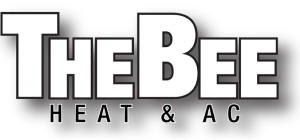Homeowners may be tempted to tackle furnace repairs on their own in order to save money, but the dangers of DIY furnace repairs can far outweigh any potential cost savings. Attempting to repair a furnace without proper knowledge and training can lead to serious hazards, including gas leaks, electrical shock, and even carbon monoxide poisoning. In addition, DIY repairs can void manufacturer warranties and cause damage to the furnace, ultimately leading to more costly repairs. It is crucial for homeowners to understand the risks and importance of professional maintenance and repairs for their furnace to ensure the safety and longevity of their heating system. In this article, we will delve into the dangers of DIY furnace repairs and why it is crucial to leave furnace repairs to the professionals.
On This Article
hide
1)
Dealing with Gas Lines
2)
Faulty Repairs Can Lead to Injury
3)
There Are Electrical Hazards
4)
You’ll Void the Manufacturer Warranty
5)
DIY Furnace Repair Can Create Fire Hazards
6)
DIY Furnace Repair Can Cause Carbon Monoxide Poisoning
7)
Small Repairs Can Turn into Big Repairs
8)
Losing Insurance Coverage
9)
Conclusion
Dealing with Gas Lines
One of the most significant dangers of DIY furnace repairs is dealing with gas lines. Furnaces rely on a steady supply of natural gas to function properly, and any interruption or leakage in the gas line can be extremely hazardous. If a gas line is not properly connected or sealed, it can lead to gas leaks, which can not only cause a fire hazard but also expose the homeowner and their family to the risk of carbon monoxide poisoning.
Another major danger of working with gas lines is the risk of explosions. Natural gas is highly flammable, and even a small spark or open flame can cause an explosion if a gas leak is present. Attempting to repair a gas line without proper knowledge and training can put homeowners at risk of serious injury or death.
It is crucial for homeowners to leave the repair and maintenance of gas lines to the professionals. A licensed and trained HVAC professional will have the necessary knowledge and equipment to safely repair or replace gas lines, ensuring the safety of the homeowner and their family.
Faulty Repairs Can Lead to Injury
Another danger of DIY furnace repairs is the risk of injury. Improper repairs can lead to physical injuries such as burns or electrical shock. Furnaces are complex systems that require a thorough understanding of the various components and their functions. Attempting to repair a furnace without proper knowledge and training can lead to improper installation or handling of components, which can result in injury to the homeowner or their family.
For example, if a homeowner attempts to repair or replace a heating element without shutting off the power to the furnace first, they risk electrocution. Similarly, if a homeowner tries to repair a gas leak without the proper tools or knowledge, they risk burns from the flame or hot surfaces.
It is essential for homeowners to understand that even small repairs can be dangerous and should only be performed by a trained professional. A licensed and trained technician will have the necessary knowledge and equipment to safely repair or replace furnace components, reducing the risk of injury to the homeowner and their family.
There Are Electrical Hazards
In addition to the risk of injury from improper repairs, there are also electrical hazards involved in furnace repairs. Furnaces are complex systems that rely on a variety of electrical components to function properly. Attempting to repair or replace these components without proper knowledge and training can lead to electrical hazards, including the risk of electrocution.
One of the most significant electrical hazards in furnace repairs is the risk of electrocution from working with live wires. It is essential to shut off the power to the furnace before attempting any repairs to avoid this risk. However, even with the power off, it’s important to be aware that some electrical components in the furnace may still be live, and a professional should be able to safely identify and handle them.
Another electrical hazard is improperly grounding the furnace or its components, which can lead to a risk of electrical shock. It’s also important to make sure that the electrical connections are tight, clean, and free of corrosion.
It is crucial for homeowners to leave the repair and maintenance of electrical components of furnace to the professionals. A licensed and trained professional will have the necessary knowledge and equipment to safely repair or replace electrical components, ensuring the safety of the homeowner and their family.
You’ll Void the Manufacturer Warranty
Another danger of DIY furnace repairs is the potential to void the manufacturer warranty. Most furnace manufacturers provide a warranty on their products, but attempting DIY repairs can void that warranty. This means that if any issues arise with the furnace in the future, the homeowner will be responsible for the cost of repairs or replacement.
When a homeowner attempts to repair a furnace on their own, they risk damaging the equipment and voiding the warranty. Even small repairs, such as replacing a filter, can void the warranty if not done correctly. Furthermore, if the manufacturer finds out that the furnace has been tampered with, they may refuse to cover any repairs or replacements under the warranty.
It is crucial for homeowners to understand that attempting DIY repairs can void the manufacturer warranty and leave them responsible for any future repairs. Instead, homeowners should schedule regular maintenance with a licensed and trained professional to keep their furnace in good working condition and ensure that the warranty remains valid. This way, if any issues arise with the furnace, the manufacturer will be responsible for covering the cost of repairs or replacement.
DIY Furnace Repair Can Create Fire Hazards
One of the most significant dangers of DIY furnace repairs is the increased risk of fires. Improper repairs can create a variety of fire hazards, including the potential for electrical fires. Furnaces are complex systems that rely on a variety of electrical components to function properly, and attempting to repair or replace these components without proper knowledge and training can lead to electrical fires.
For example, if a homeowner attempts to repair or replace a heating element without shutting off the power to the furnace first, they risk electrocution and a potential electrical fire. Similarly, if a homeowner tries to repair a gas leak without the proper tools or knowledge, they risk creating a gas leak that can lead to a fire.
It’s also important to note that DIY repairs can also create fire hazards in other ways, such as by blocking ventilation systems or creating a buildup of lint and debris in the furnace.
It is essential for homeowners to understand that even small repairs can be dangerous and should only be performed by a trained professional. A licensed and trained technician will have the necessary knowledge and equipment to safely repair or replace furnace components, reducing the risk of fire to the homeowner and their family.
DIY Furnace Repair Can Cause Carbon Monoxide Poisoning
Another danger of DIY furnace repairs is the risk of carbon monoxide poisoning. Furnaces rely on a steady supply of natural gas to function properly, and any interruption or leakage in the gas line can be extremely hazardous. Improper repairs can lead to gas leaks, which can not only cause a fire hazard but also expose the homeowner and their family to the risk of carbon monoxide poisoning.
Carbon monoxide is an odorless and colorless gas that can be deadly if inhaled in large amounts. It is produced when fuels such as natural gas or propane are burned, and it is essential to have a working carbon monoxide detector in the home. If a gas leak occurs and the homeowner doesn’t detect it in time, the gas can accumulate inside the home, putting the homeowner and their family at risk of carbon monoxide poisoning.
It is crucial for homeowners to leave the repair and maintenance of gas lines to the professionals. A licensed and trained professional will have the necessary knowledge and equipment to safely repair or replace gas lines, ensuring the safety of the homeowner and their family and detect carbon monoxide leakage.
Small Repairs Can Turn into Big Repairs
One of the dangers of DIY furnace repairs is that small repairs can turn into bigger and more costly repairs if not done properly. Furnaces are complex systems, and attempting to repair them without proper knowledge and training can lead to bigger problems down the road.
For example, if a homeowner attempts to replace a filter without understanding how to properly install it, they may end up damaging the furnace or other components in the process. Similarly, if a homeowner tries to repair a gas leak without the proper tools or knowledge, they may only temporarily fix the problem, leading to more significant repairs in the future.
Additionally, DIY repairs can also lead to bigger problems by neglecting other important maintenance tasks. For example, if a homeowner only focuses on a small repair, they may not notice other issues with the furnace that need attention, leading to more costly repairs in the future.
It is crucial for homeowners to understand that even small repairs can be dangerous and should only be performed by a trained professional. A licensed and trained technician will have the necessary knowledge and equipment to safely repair or replace furnace components, reducing the risk of bigger repairs in the future.
Losing Insurance Coverage
Another danger of DIY furnace repairs is the potential to lose insurance coverage for any damages or injuries that may occur. Most homeowner insurance policies have specific terms and conditions regarding DIY repairs and may not cover damages or injuries that occur as a result of them.
For example, if a homeowner attempts to repair a gas leak and causes a fire, the insurance company may deny coverage for the damages caused by the fire, as it was a result of the homeowner’s attempt to repair the gas leak. Similarly, if a homeowner attempts to repair a furnace and causes an injury, such as an electrical shock, the insurance company may deny coverage for the injury, as it was a result of the homeowner’s attempt to repair the furnace.
It is crucial for homeowners to understand that attempting DIY repairs can lead to losing insurance coverage for any damages or injuries that may occur. It’s better to schedule regular maintenance with a licensed and trained professional to keep their furnace in good working condition and ensure that insurance coverage will be valid in case of any damages or injuries.
Conclusion
In conclusion, the dangers of DIY furnace repairs are numerous and can range from physical injury, electrical hazards, and fire hazards to voiding manufacturer warranties, losing insurance coverage and even carbon monoxide poisoning. It is essential for homeowners to understand that even small repairs can be dangerous and should only be performed by a trained professional. A licensed and trained technician will have the necessary knowledge and equipment to safely repair or replace furnace components, reducing the risk of bigger repairs in the future and ensuring the safety of the homeowner and their family. The best way to ensure the longevity and efficiency of your furnace is to schedule regular maintenance with a professional who is trained to properly diagnose and fix any issues that may arise.

